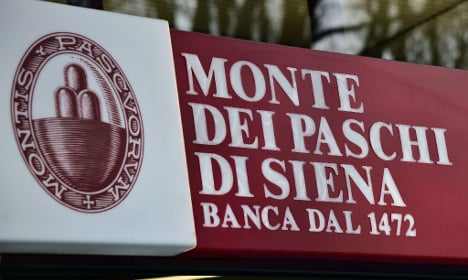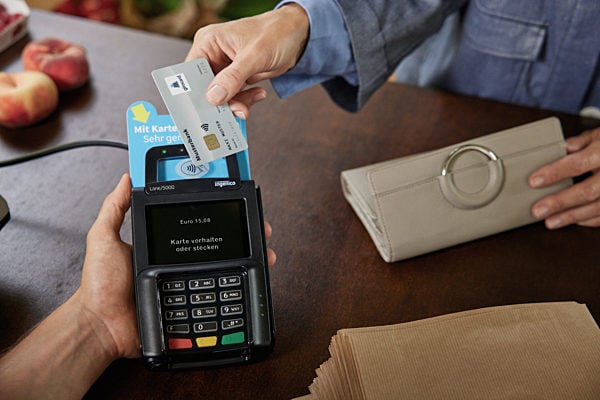Under the European Banking Authority's economic shock scenario, BMPS would suffer a 14.23 percent plunge in its core capital ratio — a measure of stability — by 2018.
That would bring the ratio for BMPS, which is both the world's oldest bank and Italy's third largest, down to minus 2.23 percent — the only one of the 51 banks tested to end up in negative territory.
The announcement came shortly after BMPS's board announced a rescue plan for shifting the billions of euros in bad loans that have weighed down on the embattled lender, which was founded in 1472.
Some analysts fear that the bank's bad debts may trigger a banking crisis in Italy and eurozone turmoil.
Shares in BMPS, which has become the eurozone banking sector's problem child, had soared on the Milan stock exchange earlier Friday, boosted by a possible new lifeline tabled by a veteran Italian banker and Swiss giant UBS.
After days of discussion leading up to a 10-hour meeting on Friday, the BMPS board of directors announced a plan to offload €9.2 billion ($10.3 billion) of bad loans, or amounts owed to a creditor that are unlikely to be paid.
The plan aims to “reach a structural, definitive solution” for bad loans, said the bank's CEO Fabrizio Viola.
Even before the plan was finalised, BMPS's stock rose over 10 percent, as it was seen as a welcome alternative to drastic restructuring measures demanded by the European Central Bank.
It closed the day at just under €0.31, up 6.3 percent.
The ECB had told BMPS, Italy's third-biggest bank, this month that it must offload 9.6 billion euros of non-performing assets within two years.
The bank, working with US bank JP Morgan and Italy's Mediobanca, has submitted a plan to shift the bad loans with the help of the Atlante fund, created specifically to take on doubtful banking assets.
The plan also calls for a capital increase of five billion euros to boost capital reserves.
But late Thursday, BMPS said it had received an alternative proposal from UBS and Corrado Passera, a former chief executive of the Intesa Sanpaolo bank and ex-minister for economic development.
Meanwhile the second worst performer in the EBA tests — Allied Irish Banks — would see a ratio fall of 8.47 percent.
“The EBA's 2016 stress test shows the benefits of the capital strengthening done so far are reflected in the resilience of the EU banking sector to a severe shock,” said Andrea Enria, chair of the London-based EBA.
But he added: “This is not a clean bill of health”.
Deutsche Bank, Germany's top lender, would fall by 5.4 percent and Royal Bank of Scotland by 7.46 percent.
“We come out of the 2016 stress test stronger than in 2014, although this year's exercise was more demanding,” Deutsche Bank's chief executive John Cryan said.
“The stress test shows that the bank is well equipped for tough times,” he said.
The 51 banks tested account for 70 percent of the sector.
They showed an average core capital ratio of 13.2 percent in 2015. Under an adverse economic scenario this would fall to 9.4 percent by the end of 2018.
The sector would therefore remain above EU legal minimum levels in case of the shock being tested — an EU economic contraction of 1.2 percent in 2016 and 1.3 percent in 2017 followed by 0.7-percent growth in 2018.
The EBA said the scenario remained valid following Britain's vote last month to leave the European Union since its tests were with worse growth figures that the worst-case Brexit scenario.
“The results of EU-wide bank stress tests show that euro area banks improved their resilience,” the European Central Bank said in a statement.
“Overall supervisory capital expectations will remain broadly stable compared to 2015,” it added.



 Please whitelist us to continue reading.
Please whitelist us to continue reading.